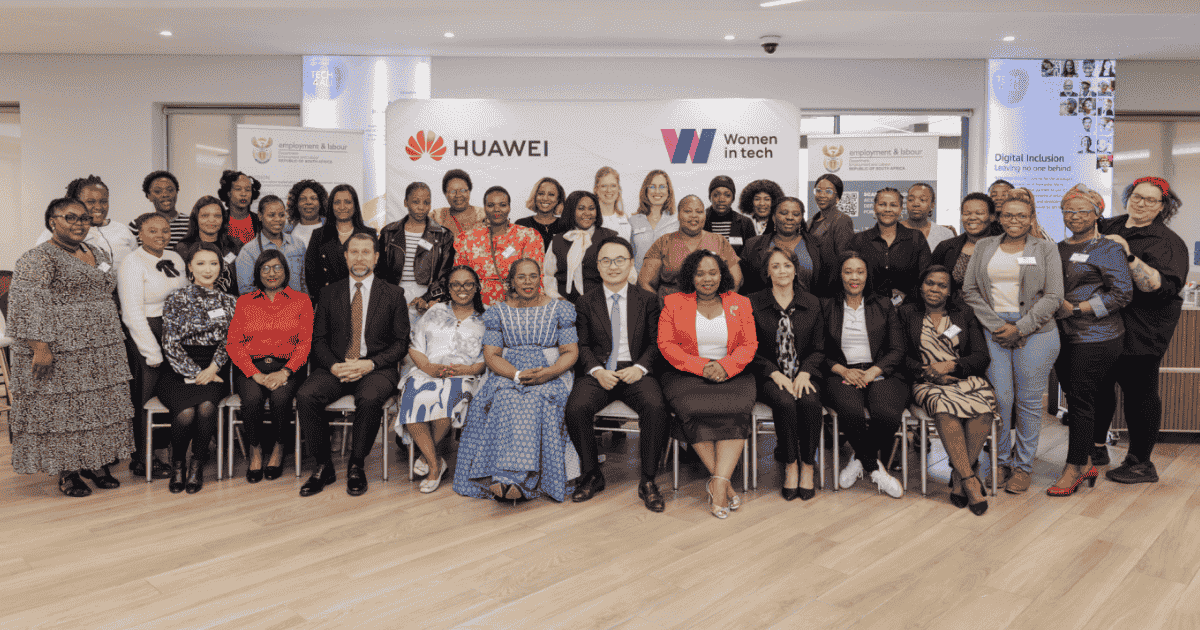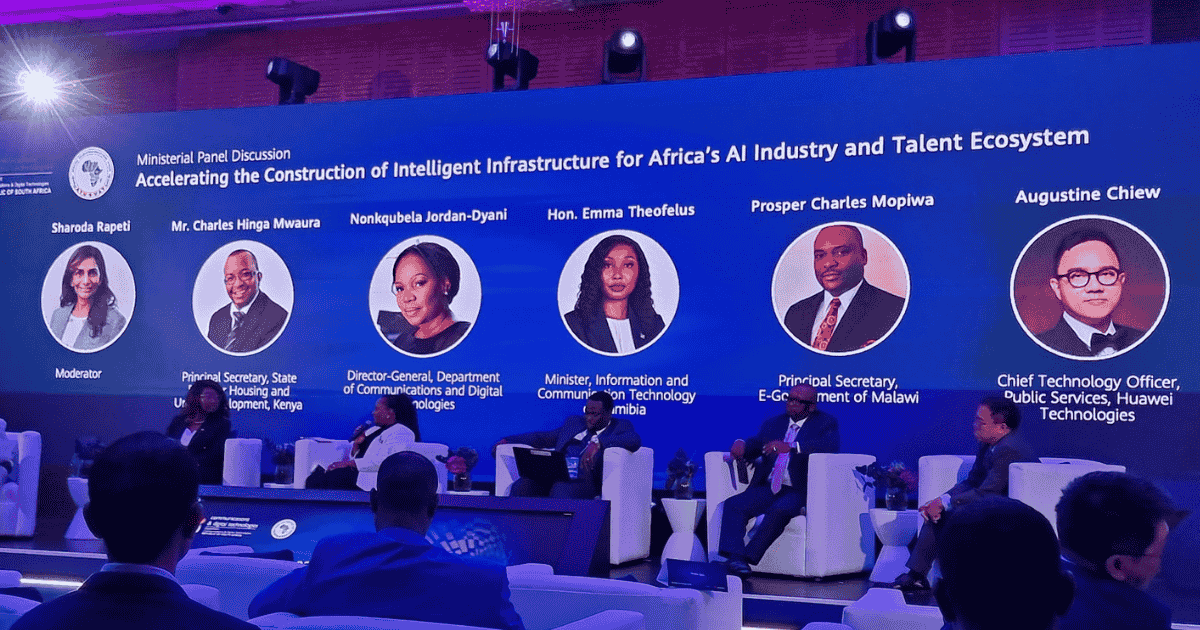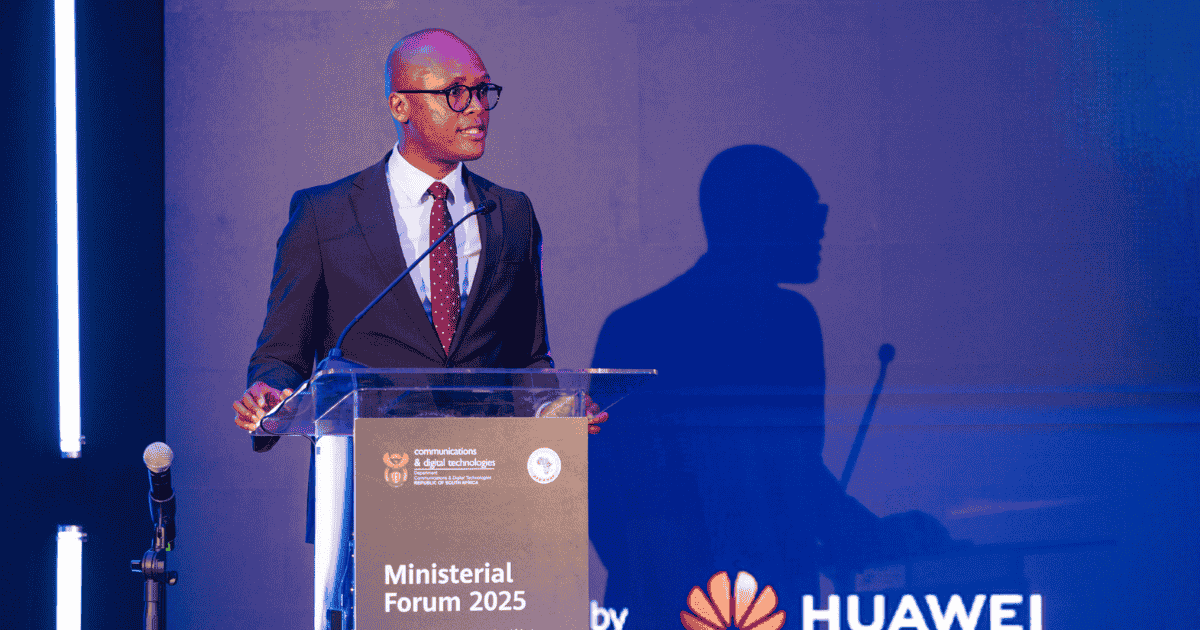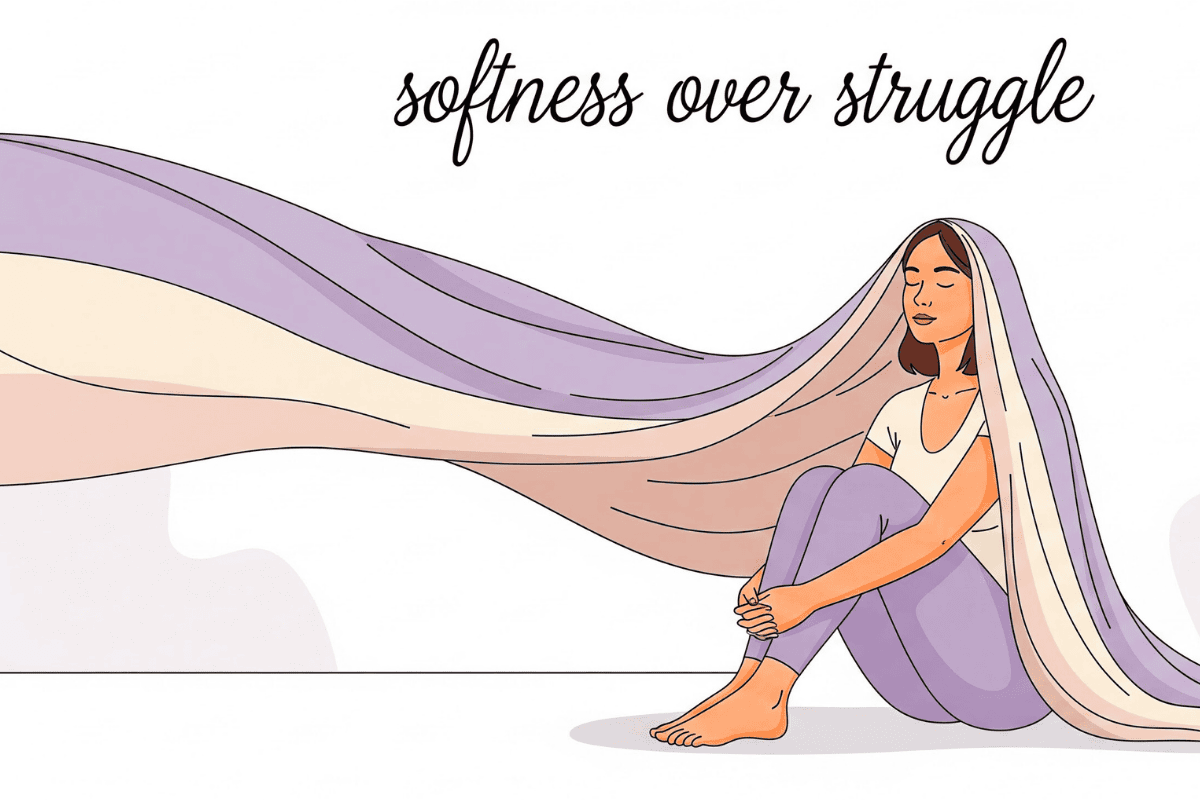Huawei marked the fourth year of its Women in Tech Digital Skills Training programme.
For this year’s session, forty women from government and business had signed up for three days of training in AI, cloud, and 5G. It also included a full day of leadership coaching with Henley Business School Africa.
The programme is a partnership between Huawei and the Departments of Communications and Digital Technologies, Employment and Labour, and Small Business Development.
Huawei’s Women In Tech 2025
This year’s edition again combined policy, industry, and academia. Government provided strategic alignment, Huawei handled the technical training at its Johannesburg campus, and Henley added leadership coaching.
The message that kept coming through was simple: women need both the skills and the confidence to lead South Africa’s digital economy.
Speaker after speaker tied it back to a bigger goals:
- putting women at the centre of economic transformation,
- closing the gender gap in tech,
- building a pipeline of leaders who can shape what comes next.
Women driving digital change
Opening the event, Charles Cheng, Deputy CEO of Huawei South Africa, said the collaboration is about ensuring more women benefit from the digital economy.
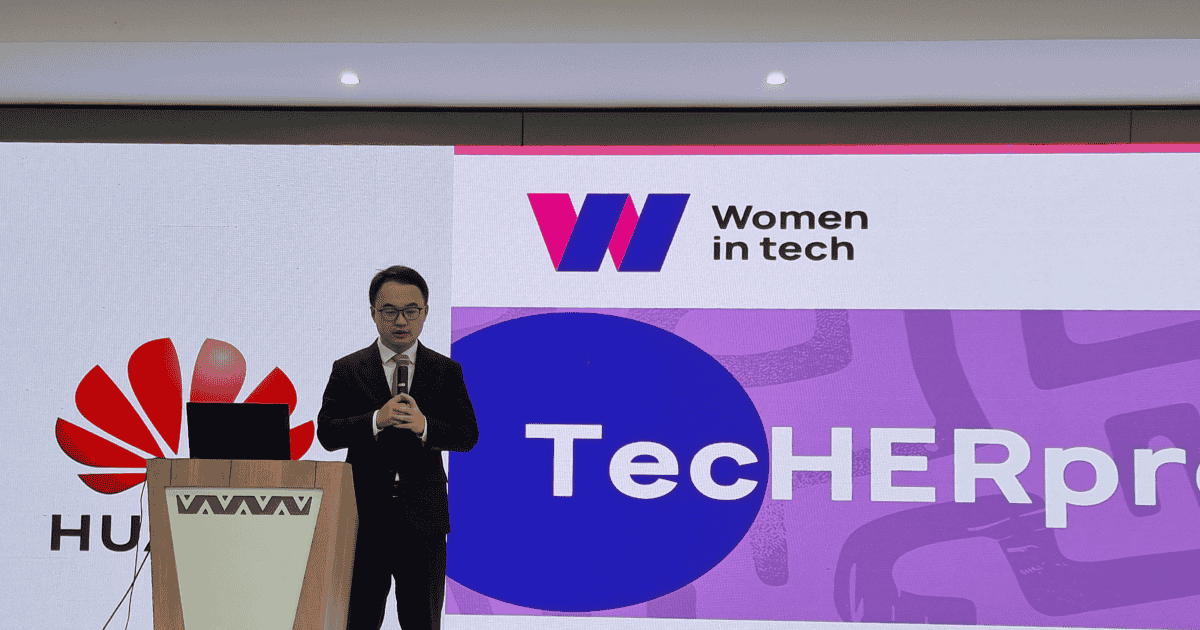
“We are proud to continue this collaboration with the government to ensure that more women benefit from the digital economy”, said Charles.
“Bridging the digital divide is at the heart of what we do with our ICT Talent Ecosystem, and this programme builds on Huawei’s broader commitment to digital inclusion.”
Nonkqubela Jordan-Dyani, Director-General of the Department of Communications and Digital Technologies, highlighted the role of purposeful tech adoption, and how it can close access gaps.
“Access is not yet equal, but technology can be far more useful when we apply it purposefully. We have seen this in our country. We can’t achieve this vision on our own, which is why collaboration with partners like Huawei is so important.”
Jordan-Dyani also pushed delegates to think bigger than their own roles.
She urged them to design tech solutions that tackle South Africa’s toughest challenges and confirmed that government is ready to back local talent and ideas with investment.
Digital inclusion means economic inclusion
Sitting in the audience, I couldn’t help but connect with what Minister of Employment and Labour, Nomakhosazana Meth, shared. She spoke about the risks of automation without equal access to skills.
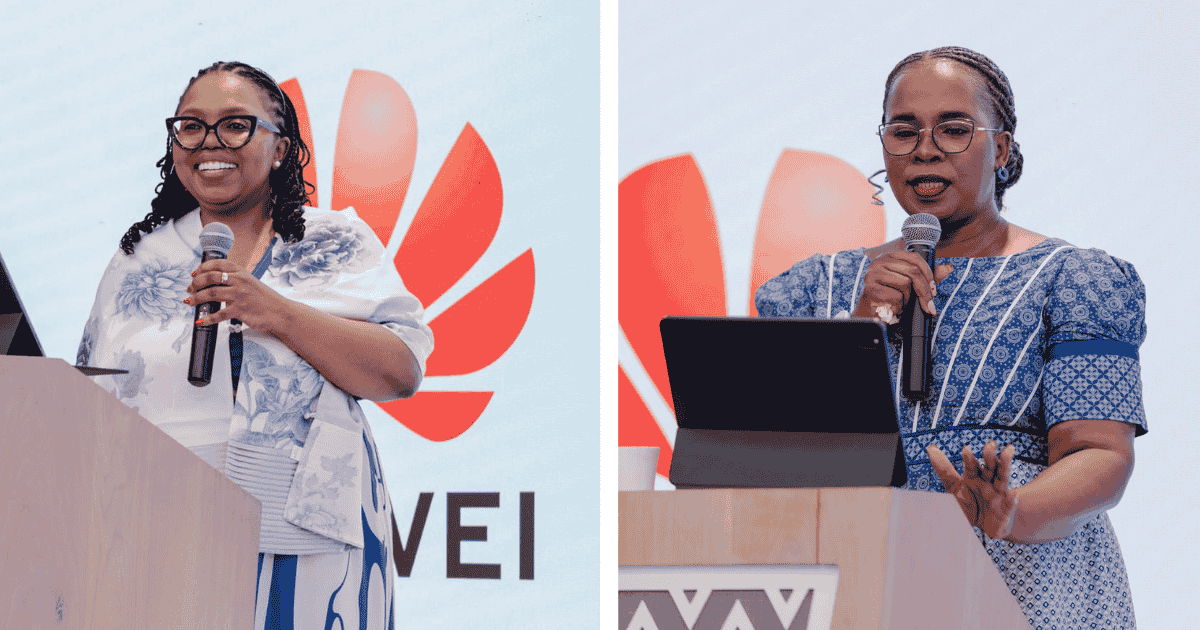
I’ve been vocal in the past about the risk of women being sidelined as automation takes over, and Minister Meth puts the numbers to it.
She cited World Economic Forum figures showing that by 2030, 85 million jobs will disappear, while 97 million new ones will be created. The catch? Women need the right skills to compete for the jobs that will remain.
“Digital inclusion must go hand in hand with economic inclusion,” Meth told delegates. She explained that access to infrastructure and skills is essential, not optional.
Meth described the Women In Tech partnership as vital for shaping the future of work. “The [programme] invests in women’s futures by creating pathways for high-tech mentorship and knowledge sharing,” she said.
Skills and confidence combined
The programme mixed Huawei’s technical training in 5G, cloud, and AI with a full day of leadership development at Henley Business School.
The idea was to go beyond technical expertise and focus on building confidence too.
Christina Naidoo, COO of Huawei South Africa, was direct about what progress really looks like.
“At Huawei, we believe the real measure of digital progress is whether women are fully included. We want to ensure that women have the access, the skills and the confidence to lead in a digital-first world,” she said.
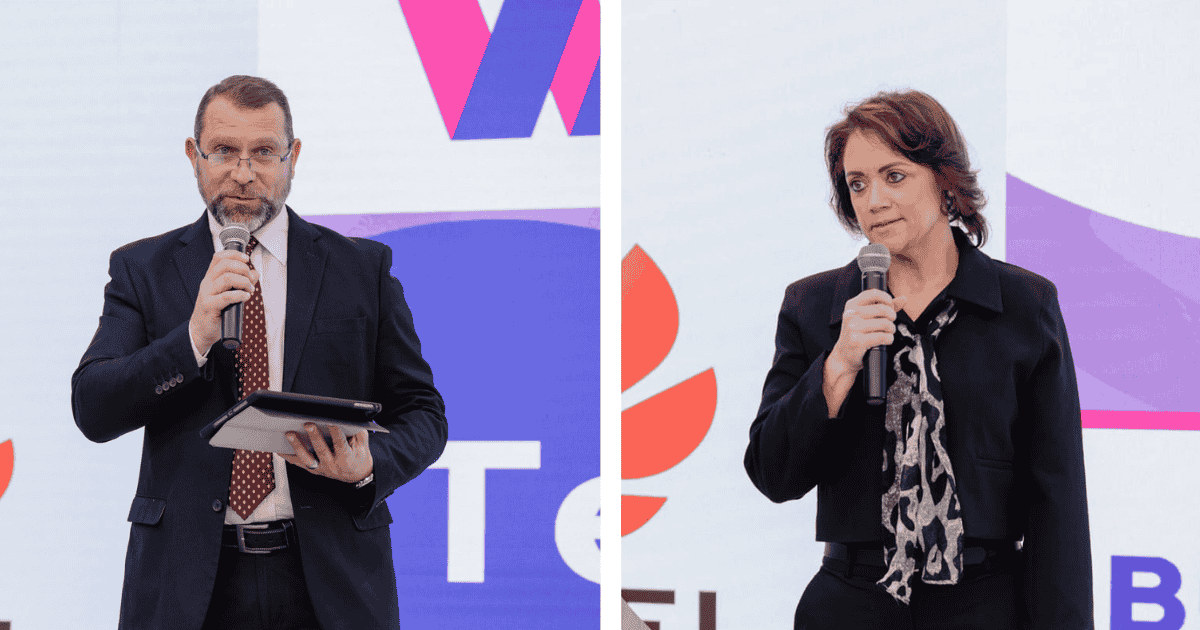
READ: ‘Weaponise the youth’, Africa’s AI leap depends on them
A long-term pipeline
Jacky Molisane, Acting Director-General of the Department of Employment and Labour, reminded the room that collaboration is more than a buzzword.
“When women are at the centre, productivity rises, enterprises grow and communities thrive,” she said. Molisane said women’s inclusion is as much an economic strategy as it is a social issue.
For South Africa to grow, women must be supported with training, tools, and real pathways into work. Without that pipeline, the country risks leaving half its talent behind.
She also noted that the Women in Tech programme speaks directly to labour’s priorities:
- employability,
- entrepreneurship,
- and building resilience in a changing job market.
By linking digital skills to real opportunities, the programme gives women training while also opening doors to new opportunities.
Huawei notes that since 2021, more than 300 women have been trained through the Women in Tech initiative. This year’s deeper collaboration with the Department of Employment and Labour aims to link that training to employment pathways.

